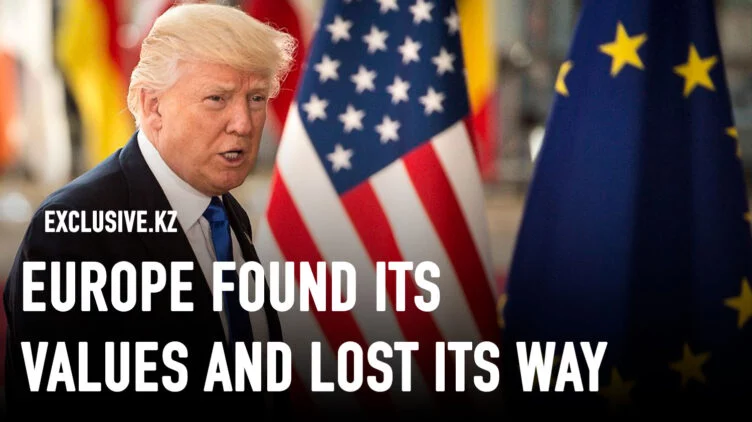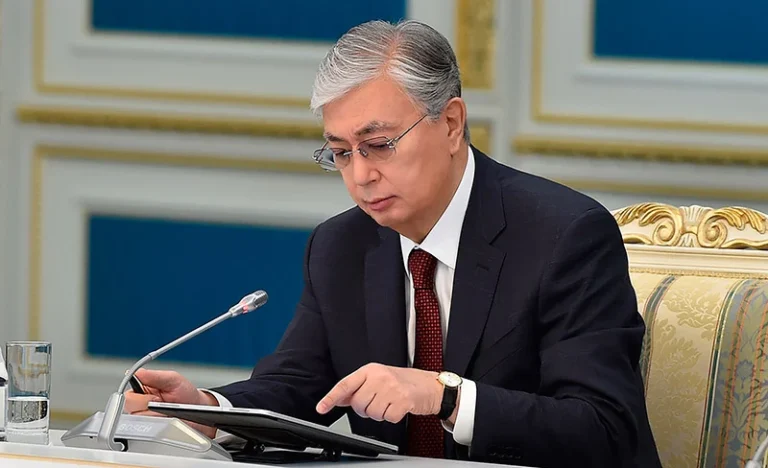Amid growing geopolitical tumult the EU’s achievements appear increasingly tenuous

The European Union is among the most ambitious political projects in history. In many ways, it is also among the most successful, having fostered an era of unprecedented peace and prosperity on a continent plagued by centuries of violent conflict. But, amid growing geopolitical tumult and deepening economic malaise, the EU’s achievements appear increasingly tenuous.
In his much-discussed report on European competitiveness last year, Mario Draghi, a former European Central Bank president and Italian prime minister, lamented the growing gap between the EU and the United States, in terms of both economic performance and global influence. Tackling these weaknesses will be no easy feat, especially since US President Donald Trump appears likely to challenge fundamental tenets of EU policy.
But perhaps the most fundamental risk to Europe’s future is of its own making. From the creation of the European Coal and Steel Community to the introduction of the euro, European integration – and the stability and prosperity it supports – has always depended on a pragmatic, incremental, project-oriented approach. But, around the turn of the century, something changed: Europe started to define itself by its “values,” not by concrete indicators like economic performance, technological progress, and geopolitical influence.
Today, European policymaking seems utterly indifferent to – and, at times, even hostile toward – economic growth, innovation, and cooperation. Tech regulation is a case in point. Instead of finding common ground with their democratic partners – former US President Joe Biden’s administration was undoubtedly receptive to reining in Big Tech – EU leaders got caught up in their differences and, ultimately, chose to go it alone. Expending huge amounts of political energy, they produced sweeping directives like the Digital Services Act and the Digital Markets Act. But the rules are open to challenges by other governments. And with tech leaders now working closely with Trump to shape the global policy agenda, regulating them will grow only more difficult.

The problem with letting high-level principles dictate policy is that the results are often disconnected from economic, technological, and social realities. In fact, EU tech regulations are typically devised and implemented before the relevant technology or industry fully develops, often when no European firms are even operating in the targeted domain. So, while Europe leads the world in setting standards for the digital economy, it plays only a minor role in developing and producing the associated technologies. The EU’s General Data Protection Regulation is widely viewed as a model for others, but the bloc has far fewer large data centers than the US. Likewise, while the EU has the world’s most advanced regulatory regime for artificial intelligence, it has almost no AI firms on its territory.
A narrow values-based approach can also produce policies that fail to consider – or actively conflict with – people’s immediate needs, leading to alienation and resentment. Perhaps the most salient example is the energy transition. The EU’s emissions, per unit of GDP, are the world’s lowest, having fallen by the largest margin over the last decade. The EU has also set the world’s most ambitious emissions-reduction targets, and it will likely be the only economy to implement a significant carbon tax.
But Europe also has some of the world’s highest energy prices – significantly higher than in the US. Nearly one-quarter of the gap with the US is accounted for by the EU’s taxes and carbon costs. Not surprisingly, high energy prices have fueled strikes and protests in several EU countries, while providing populist parties with a powerful rallying cry.
The EU’s values-based approach could also undermine its global influence. European leaders generally assume that the size of the EU’s market gives it considerable leverage over other countries. But market size does not automatically translate into market power. How can Europe expect to play a leading role in defining global standards for cutting-edge technologies that it does not produce? If China and the US agreed on how (or how not) to regulate AI, what could Europe do about it? At most, it could “protect” its consumers, at the price of isolating them. Already, Apple has delayed the launch of new AI-powered features in Europe, owing to EU competition rules.
Even where the EU’s market size does give it significant clout, it should think twice before using its influence to force its values on others. Measures like the Carbon Border Adjustment Mechanism (CBAM) fuel resentment among the emerging and developing economies that are forced to bear high costs to retain access to the EU market. In an increasingly fragmented and disorderly world, an isolated Europe risks becoming a target, not only of Trump’s US, but also of ambitious and aggressive emerging powers, such as China.
To navigate the challenges ahead, Europe must return to its roots, pursuing pragmatic policies that advance shared interests. For example, just as it integrated its coal and steel industries into a single market in the 1950s, Europe should integrate its technology sectors and pool its digital resources today. Moreover, European digital and environmental legislation must be reviewed and reformed – not just streamlined – so that it is compatible with efficiency, dynamism, and fairness. Measures like the CBAM should be postponed, pending dialogue with developing economies.
Meanwhile, to support the development of high-tech industries and strengthen the EU’s production base, policymakers should rely more on independent actors, separate from the regulatory and political apparatus. Institutions like the ECB and companies like Airbus have contributed more to Europe’s prosperity and influence than any directive.
None of this is to say that Europe should abandon its role as a global standard-setter. On the contrary, adopting a more practical approach, based on real-world considerations, is precisely what is needed to enable Europe to perform this role more effectively.
Copyright: Project Syndicate, 2025.





Все комментарии проходят предварительную модерацию редакцией и появляются не сразу.